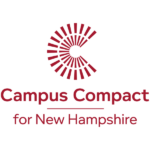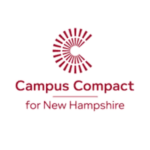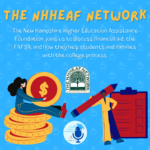Related Content

Events
Rural Conversations

Events
New Hampshire Access Summit

Navigate: A Road Map for New Hampshire S

Podcasts
Dorm Sweet Dorm

Podcasts
Solidly Scholarly

Podcasts
Legally Speaking

Podcasts
The NHHEAF Network

Podcasts
Hairs to You

Podcasts
Admissions Advice

Podcasts
United We Serve
Applying STEM to Real-World Issues through Service-Learning
Students in the United States are often found to underperform academically in science, technology, engineering, and math (STEM). As a result, they are not choosing to pursue careers in STEM fields at a rate needed to meet expected demand in the labor market–thus creating a skills gap. One way to address the STEM skills gap is for higher education to work with K-12 schools to get children more interested in STEM fields by linking STEM learning to real-world issues. This approach can also help struggling students perform better in STEM areas. This will, in turn, create better-performing students who are…
Building K–12/Higher Education Partnerships
K–12 / higher education partnerships are perhaps the most pervasive form of community partnerships in higher education. In the early 1900s, for example, educational philosopher John Dewey created laboratory schools at the University of Chicago as a place for pre-service teachers to learn teaching by actually doing it. For many years, universities have placed pre-service teachers in classrooms across the United States. A call for increased university involvement grew out of the concerns raised by the A Nation at Risk report (National Commission on Excellence in Education, 1983) and the subsequent Holmes Group Report (1986), which specifically called attention to…
Increasing Student Political Participation
While many parts of fostering civic engagement in a campus environment are hard to measure, the rate of student voter registration and student voting are two very easy variables to quantify, and are in fact publicly available data if you know where to look. And of course, if you’re not registered, you can’t vote. Different inputs that affect the rate student voting at a given institution highlighted in this guide are more complicated, and will vary substantially from campus to campus depending on the student population type. To increase the rate of student voter registration and student voting on your…
Building Deep and Sustainable Connections among Sport, Academics, and Community
Most colleges and universities believe athletics to be a critical part of the academic experience. Sport programs enhance the college’s reputation and teach student athletes important life lessons about perseverance, cooperation, and leadership that complement the academic mission. However, the significant demands of sport can isolate athletes from the larger student population and contribute to a disparaging stereotype of athletes as less engaged in the life of the university and in the community. The response of many colleges and universities is to develop separate service initiatives for athletes. However, these service programs tend to place more demands on the limited…
Assessment of Students’ Civic Learning and Development
One vital responsibility of higher education institutions is to prepare students for lives of engaged citizenship, with the motivation and capacity to deliberate, act, and lead in pursuit of the public good. Being able to measure and share the outcomes your students achieve due (in part) to the community engagement activities they participated in through your institution is something we hope all of our partner institutions aspire to accomplish. We are all familiar with the adage that students receiving a degree should learn something and develop into prepared graduates—typically focused on learning and preparation for the workforce or a career….
Dialogue Resources for Higher Education
Dialogue is a process in which groups come together to share experiences around issues that are often avoided or argued toward the goal of informed decision making. Dialogue involves mutual understanding, suspending judgment, and listening deeply, rather than seeking to win. Campuses engaged in dialogue use the tool to engage with diverse viewpoints in true civil discourse. A community that has a high level of dialogue skill creates enhanced experiences in co-curricular life, civic engagement, and curricular environments. Dialogue equips students, faculty, and staff with the skills to build shared understanding of challenges, to empathize with experiences very different from…
Aligning Institution to Community
Colleges and universities are anchor institutions in their communities. To adopt an anchor mission entails adopting a strategy to leverage institutional assets. Ways to leverage economic assets and revenues to promote local private-sector development include: Directing a greater percentage of purchasing power toward local and minority vendors based in the community. Hiring a greater percentage of the workforce locally. Providing workforce training for people needing assistance in the community. Incubating the development of new businesses, including social enterprise among nonprofits. Leveraging real estate development to promote local retail, employer-assisted housing, and community land trusts. Using pension and endowment funds to…
Increasing College Access
Higher education is the bedrock of a just, equitable, and sustainable future. Understanding that higher education institutions are responsible for preparing students to be engaged citizens, we together strive for the highest possible level of inclusivity. College access is central to this inclusivity, making possible a strong, healthy, active democratic society. One of a wide range of Knowledge Hubs from Campus Compact, Increasing College Access offers models, best practices, and resources for increasing college access.
Engaged Scholarship Toolkit
Campus Compact developed the Engaged Scholarship Toolkit to help faculty and administrators advance community-engaged scholarship on campus. The toolkit is designed to: Add clarity to the meaning and conceptualization of community-engaged scholarship in a research university context. Provide a rationale for why to do it and resources on how to do it well. Offer tools and assistance for faculty at research universities to document engaged scholarship for reward and promotion. Provide tools and assistance for assessing engaged scholarship. Find the Engaged Scholarship Toolkit on the national Campus Compact website.
NH College Access Forum Keynote Address
Major change is difficult in higher education. But to meet changing student demographics and expectations, change is necessary. This substantive keynote address from the CCNH/NHCUC College Access Forum explores how New Hampshire colleges and universities can change–by adopting policies that expand student access to and success in college. See the keynote address by Dr. Wanda Mitchell, Vice Provost for Faculty Development and Inclusive Excellence at the University of New Hampshire.
Confronting Student Success Challenges
Under what circumstances do student learn? What are the conditions that promote learning and success? This presentation, from Campus Compact for New Hampshire’s retreat on college success, explores these questions and more. See Confronting Student Success Challenges, a presentation by Jillian Kinzie, IU Center for Postsecondary Research.
 -->
-->
